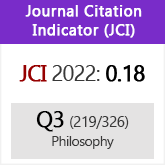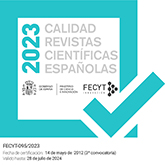Carácter moral y deberes éticos
DOI:
https://doi.org/10.3989/isegoria.2004.i30.480Abstract
Proponents of virtue ethics usually charge Kantian ethics with being act-centered because, they claim, its main object of moral evaluation are particular acts. This has the unwelcome consequence that an act can be morally worthy though the character who performs it is not virtuous. They also claim that ethics should focus on the character of persons such that only those acts that are the expression of a virtuous characters can be morally good. My purpose in this article is to show that the main object of moral evaluation in Kantian ethics is the character of persons. The categorical imperative does not demand the performance of particular acts, but the adoption of maxims of ends, which maxims are principles to guide a complete life. I claim that the adoption of such maxims necessarily requires the acquisition of a virtuous character so that whoever commits herself to living according to ethical principles both performs good acts and acquires a virtuous character.
Downloads
Download data is not yet available.
Downloads
Published
2004-06-30
How to Cite
Rivera Castro, F. (2004). Carácter moral y deberes éticos. Isegoría, (30), 149–160. https://doi.org/10.3989/isegoria.2004.i30.480
Issue
Section
Notes and Discussions
License
Copyright (c) 2004 Consejo Superior de Investigaciones Científicas (CSIC)

This work is licensed under a Creative Commons Attribution 4.0 International License.
© CSIC. Manuscripts published in both the printed and online versions of this Journal are the property of Consejo Superior de Investigaciones Científicas, and quoting this source is a requirement for any partial or full reproduction.All contents of this electronic edition, except where otherwise noted, are distributed under a “Creative Commons Attribution 4.0 International” (CC BY 4.0) License. You may read here the basic information and the legal text of the license. The indication of the CC BY 4.0 License must be expressly stated in this way when necessary.
Self-archiving in repositories, personal webpages or similar, of any version other than the published by the Editor, is not allowed.














